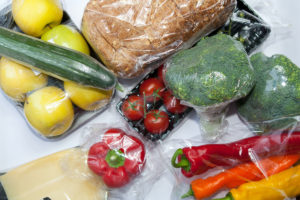Environmental groups unite to demand a zero-plastic waste future for Canada
More than 40 environmental and civil society groups push the Canadian government to more strongly reduce plastic waste.
Full Article:
More than 40 environmental and civil society groups have banded together in advance of this weekend’s G7 summit to ask the federal government to take a tougher approach to reducing plastic waste. Canada currently recycles less than 11 per cent of its plastic waste.
The declaration, Towards a Zero Plastic Waste Canada, challenges Canada to achieve zero plastic waste by 2025. Signatories include Environmental Defence, the David Suzuki Foundation and the Ecology Action Centre.
“We really do need to step up and have a national strategy,” says Ashley Wallis, program director at Environmental Defence, which coordinated the declaration.
Currently, provinces and territories set their own legislative frameworks for how waste should be collected and establish their own recycling targets. Municipalities turn that legislation into action, for example by providing curbside waste collection programs, but the extent and effectiveness of recycling programs across the country is uneven.
“It’s very fragmented,” says Wallis, who wrote the initial draft of the declaration. “There’s different rules in different provinces, there’s different rules in different municipalities, there’s different targets, different materials are recyclable.”
Wallis and the other signatories hope that by adopting a cohesive national strategy, the federal government can help other levels of government work together to achieve bold targets.
She adds many people have told her that they are trying to make lifestyle changes to avoid plastic altogether. A national strategy would make that easier.
“It’s actually extremely challenging for them to do so, because plastic is so ubiquitous in our environment, in our society,” says Wallis. “Producers, really, at the end of the day are the ones who are responsible for designing this stuff.”
The declaration asks for legislation that would make companies responsible for collecting and recycling materials they put on the market. Wallis hopes that by putting the onus back on producers, it will encourage them to use fewer material resources and design products that are more recyclable. She also foresees a greater degree of standardisation in local recycling programs that will make it easier for consumers to know what they can recycle and what they can’t.
Such uniformity could be beneficial to industry too, who often have to operate in different jurisdictions with different regulations. Wallis is optimistic about the plastic industry’s openness to taking on a bigger role in reducing plastic waste. On Monday, the same day the Zero Waste declaration was released, the Canadian Plastics Industry Association (CPIA) and the Chemical Industry Association of Canada announced targets to re-use, recycle or recover 100 per cent of plastic packaging by 2040.
“It’s a waste of precious resources for plastics to be used once and then landfilled,” Carol Hochu, president and CEO of CPIA, said in a statement.
Setting an example
Mark Butler, policy director of the group Ecology Action, says there are potential economic benefits to committing to a zero-waste future. “We’ve been sending our plastic overseas to be recycled or who knows what, but we have the opportunity to develop a domestic recycling industry which could create jobs and help stem the flow of plastic going into the environment.”
Butler believes such a strategy could align well with the federal government’s commitment to a clean economy.
Canada currently holds the presidency of the G7, an international alliance of major world economic powers including the United States, United Kingdom and Japan. Prime Minister Justin Trudeau has said Canada will use its presidency to push for a global conversation on plastic pollution.
The declaration challenges the Canadian government to champion a global charter based on the successful precedent of the Montreal Protocol. The Montreal Protocol resulted in a dramatic reduction of harmful ozone-destroying aerosols. It was one of the first universally ratified agreements in UN history and has been widely lauded as one of the most successful international agreements.
“That kind of model would really increase our chances of reducing the amount of plastic waste we’re seeing around the world,” Wallis says.
A spokesperson for Environment and Climate Change Canada confirmed that Canada will propose a plastics charter at the G7 leaders’ meeting.



